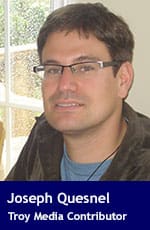Influencers fueling climate panic with their extremist rhetoric are a danger to science-based public policy
 Toronto Globe and Mail columnist Gary Mason recently penned a column titled The country is on fire. Pierre Poilievre doesn’t care. Columnists often don’t choose their headlines, but this one was drawn directly from Mason’s assertion about “the planet burning up.”
Toronto Globe and Mail columnist Gary Mason recently penned a column titled The country is on fire. Pierre Poilievre doesn’t care. Columnists often don’t choose their headlines, but this one was drawn directly from Mason’s assertion about “the planet burning up.”
The Frontier Centre for Public Policy recently released my study on Canada’s looming threat of eco-extremism. It reveals how a distorted intellectual foundation on climate change fosters public fear and anxiety. Mason employed a familiar tactic: seizing on extreme weather incidents, like the recent forest fire near Fort McMurray, Alberta, and attributing them to climate change.
The United Nations Intergovernmental Panel on Climate Change (IPCC), the leading authority on climate science, presents a nuanced and tentative view. In her well-researched book Inconvenient Doubts, Joanne Marcotte outlines three key points about IPCC reports:
- They include varying degrees of confidence and probabilities, rarely mentioned by the media;
- Some statements refer to specific regions but are often generalized globally; and
- An extreme weather event becomes a disaster only if a region cannot respond effectively.
 Image by Jplenio |
| Related Stories |
| Eco-extremism in Canada is becoming a growing threat
|
| The truth about fracking
|
| Some inconvenient questions for Trudeau about his emissions cap
|
Instead of providing nuance, Mason directly links the forest fire to climate change, calling it the “new normal.” This reckless use of catastrophic language mirrors that of ideologues. The severity and intensity of heat waves attributed to climate change and their regional impacts are still being debated. Describing the earth as “burning” or “on fire” is unscientific and misleading.
Journalists, often lacking scientific training, adopt alarmist language from their surroundings. Politicians eager to push climate policies resort to extreme rhetoric to generate urgency, while environmentalists abandon measured scientific language to build support and raise funds. Alarmism is so prevalent that prominent scientists criticize politicians and others for their language. Climate scientist Judith Curry, in her book Climate Uncertainty and Risk: Rethinking our Response, expresses concern about the current state of the debate. Scientists avoid terms like “burning planet” for good reason – it’s ideological and activist language.
Just Stop Oil, a British extremist group, demands a halt to new fossil fuel licensing and production, using their bodies to block roads and bridges. The group claims that new fossil fuel extraction “will kill our children and condemn humanity to oblivion” and that human-induced climate change “will destroy human civilization unless emergency action is taken.” This rhetoric is far removed from scientific reality.
Thankfully, this group doesn’t operate in Canada, though groups like Extinction Rebellion, which engage in extreme acts like gluing themselves to objects, do. In 2022, anarchists motivated by “decolonization” rhetoric and extreme hatred towards the energy industry attacked a pipeline worksite in B.C. Extremist groups in Canada and abroad are normalizing attacks on energy infrastructure based on distorted beliefs. “World on fire” rhetoric fuels this extremism.
Mason also weaponizes the virtue of caring, suggesting that because Poilievre doesn’t endorse certain policies, he doesn’t care about the planet. This ignores the complexity of the debate. No one can read minds to know Poilievre’s true feelings.
Lastly, Mason erroneously links carbon taxes to combating climate change. One cannot confidently claim that higher carbon taxes would have prevented or mitigated the effects of this forest fire. Alarmist rhetoric not only distorts public policy debates but also harms the public.
My report on eco-extremism highlights the growing climate change anxiety among young people constantly exposed to unscientific alarmist language that is causing them to grow up in fear. Some young families are tragically even foregoing having children.
A fearful society – especially one driven by unfounded beliefs – is dangerous. Manipulators can exploit fearful people to support unnecessary and harmful policies. Influential voices must think carefully before they write, lest they contribute to this misguided discourse.
Joseph Quesnel is a senior research fellow with the Frontier Centre for Public Policy.
For interview requests, click here.
The opinions expressed by our columnists and contributors are theirs alone and do not inherently or expressly reflect the views of our publication.
© Troy Media
Troy Media is an editorial content provider to media outlets and its own hosted community news outlets across Canada.

